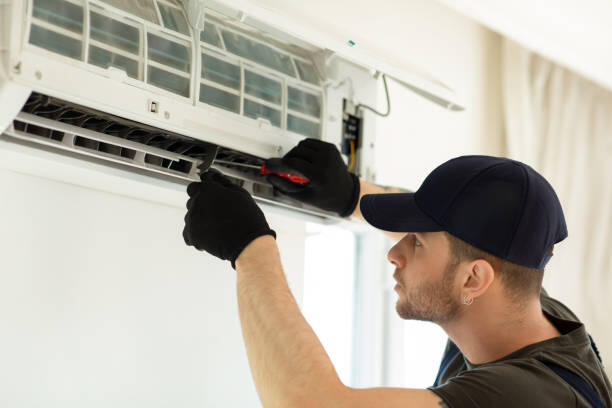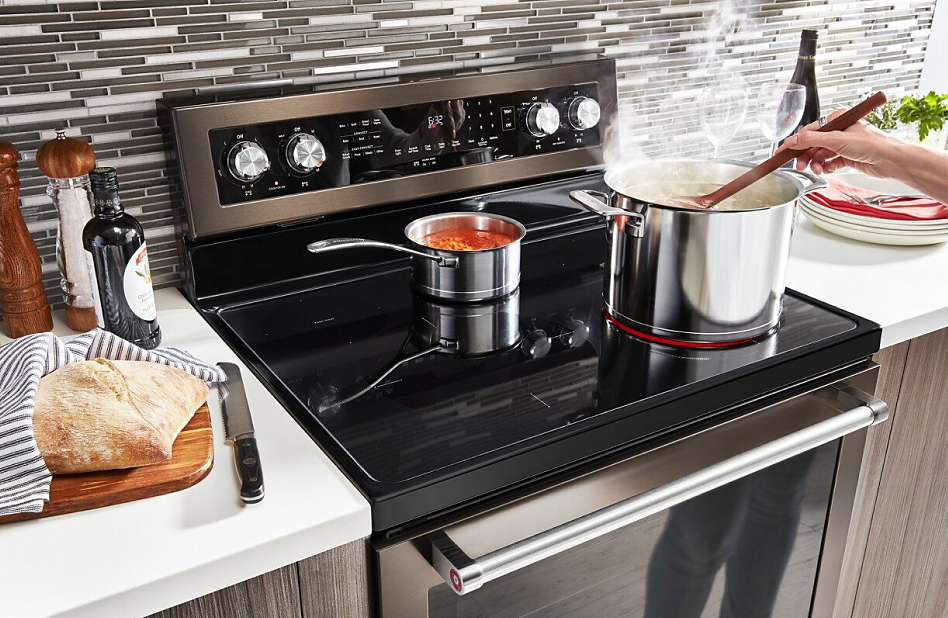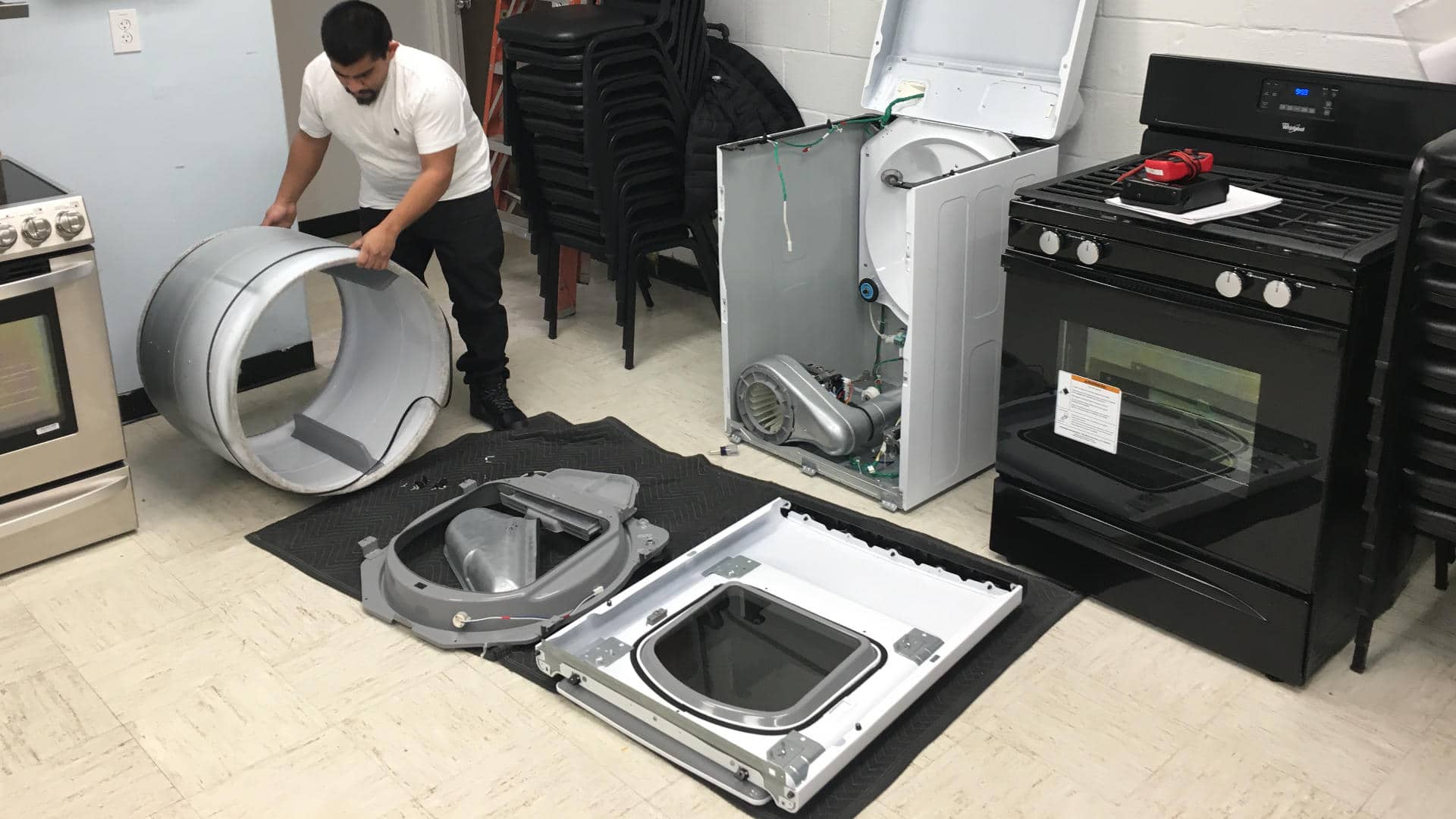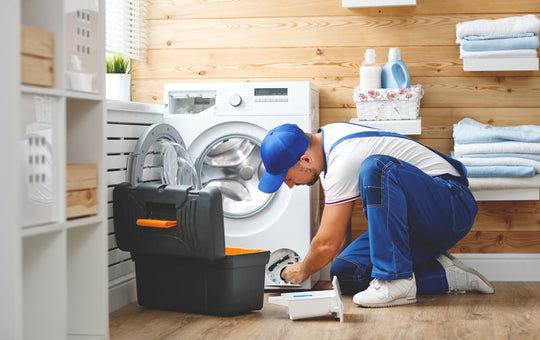Summer Maintenance for Cooling Appliances
Recognizing when your home appliances need professional repair is crucial for maintaining their longevity and efficiency. Recognizing the signs of malfunction early can prevent costly breakdowns and ensure safe operation. This guide will help you identify key indicators that your appliances require professional attention, helping you make informed decisions about repairs.
Summer Maintenance for Cooling Appliances
As temperatures soar during the summer months, the demand on cooling appliances like air conditioners and refrigerators increases significantly. Proper maintenance is essential to ensure these appliances operate efficiently, withstand the heat, and continue to perform at their best. Here’s how you can maintain your cooling devices during the summer:
Air Conditioner Maintenance:
Clean or Replace Filters: Regularly cleaning or replacing the air filters in your air conditioner can prevent dust and dirt from impairing airflow and efficiency.
Check Refrigerant Levels: Low refrigerant levels can reduce the efficiency of your air conditioner. Have a professional check these levels and refill if necessary.
Inspect and Clean the Coils: Dirty coils can inhibit the air conditioner's ability to cool your home. Cleaning these coils can improve performance and reduce energy consumption.
Refrigerator Maintenance:
Vacuum the Condenser Coils: Dust and pet hair can clog your refrigerator’s condenser coils, which are crucial for cooling efficiency. Cleaning these coils can significantly improve performance.
Check Door Seals: Ensure the seals around your refrigerator and freezer doors are tight and clean to prevent warm air from entering the appliance.
Set the Correct Temperature: Keep your refrigerator between 37-40°F and your freezer at 0°F to optimize performance and energy use.
By following these maintenance tips, you can enhance the efficiency of your cooling appliances, reduce energy costs, and ensure they remain in good working condition throughout the summer season. Regular checks and upkeep not only prolong the life of these appliances but also prevent disruptions during the hottest days of the year.
Keeping Your Air Conditioner Efficient
Ensuring your air conditioner remains efficient throughout the summer is crucial for maintaining a comfortable indoor environment and keeping energy costs down. Here are some key maintenance tips to keep your air conditioning unit running smoothly:
Regularly Clean or Replace Filters: One of the simplest yet most effective ways to maintain air conditioner efficiency is to clean or replace the air filters every 1-2 months during peak usage. Clogged filters restrict airflow, forcing the unit to work harder and consume more energy.
Check and Clean the Evaporator and Condenser Coils: Dirty coils reduce the air conditioner's ability to absorb and expel heat. Check these coils periodically and clean them as needed to ensure optimal performance.
Clear Debris from Around the Unit: Make sure the area around your outdoor air conditioning unit is clear of debris, leaves, and shrubbery. This clearance helps improve airflow and cooling efficiency.
Schedule Professional Maintenance: Before the onset of summer, have a professional HVAC technician inspect and service your air conditioner. They can check for issues such as coolant leaks and mechanical problems that may not be immediately apparent to the untrained eye.
Optimize Thermostat Settings: Use a programmable thermostat to increase the temperature slightly when you are not home and reduce it to a comfortable level when you are. This prevents overuse and helps save on energy bills without sacrificing comfort.
By implementing these strategies, you can significantly enhance the efficiency of your air conditioner, prolong its lifespan, and enjoy a cooler home during the hot summer months. Regular maintenance not only prevents costly breakdowns but also ensures your unit is ready to handle the summer heat effectively.
Maintenance Tips for Refrigerators and Freezers
Proper maintenance of refrigerators and freezers is essential, especially during the summer months when high temperatures can strain their cooling systems. Here are practical tips to ensure your refrigerator and freezer run efficiently:
Clean the Condenser Coils: Dust and debris can accumulate on the condenser coils located at the back or beneath the unit, which impedes their ability to release heat. Vacuum these coils every six months to maintain optimal efficiency.
Check and Replace Door Seals: Worn or loose seals allow cool air to escape, forcing the refrigerator or freezer to work harder and consume more energy. Inspect the seals for any gaps or signs of wear and replace them if necessary.
Keep the Appliance Full: A well-stocked refrigerator or freezer maintains its temperature better than an empty one. The mass of cold items inside helps to keep the temperature down, thereby reducing the workload on the cooling system.
Defrost Regularly: Frost buildup can impair the cooling efficiency of your appliance. If your unit is not frost-free, regular defrosting is necessary to keep it running efficiently.
Allow for Proper Air Circulation: Avoid overpacking and allow enough space between items for air to circulate freely, helping to maintain uniform temperature throughout the interior.
Set the Right Temperature: Keep your refrigerator at or below 40°F (4°C) and your freezer at 0°F (-18°C). This ensures your food is stored safely without overworking the cooling system.
Implementing these maintenance tips will help your refrigerators and freezers function more effectively, prolong their lifespan, and ensure they operate at peak efficiency during the demanding summer months. Regular checks and upkeep will save on energy costs and prevent unexpected breakdowns.
Cleaning Coils, Checking Seals
Two critical maintenance tasks that significantly impact the efficiency of your cooling appliances, especially during summer, are cleaning the coils and checking the seals. These straightforward procedures can prevent major issues and ensure optimal performance.
Cleaning Coils:
The coils in your refrigerator and air conditioner play a crucial role in dissipating heat. Over time, these coils can accumulate dust, pet hair, and other debris, which insulate the coils and reduce their efficiency.
Refrigerator: Turn off the refrigerator and locate the condenser coils, usually found at the back or beneath the appliance. Using a coil brush and a vacuum, gently remove any buildup from the coils. This should be done at least twice a year or more frequently if you have pets.
Air Conditioner: Ensure the power is disconnected before starting. Remove the outer covers and use a soft brush or a vacuum with a brush attachment to clean the coils. Be gentle to avoid bending the fins. Cleaning should be done at least once a year before the peak season.
Checking Seals:
Proper seals on your refrigerator and freezer doors ensure no cold air escapes, maintaining efficiency and reducing workloads on the compressors.
Inspect the seals: Look for any cracks or tears in the sealant. Close the door on a thin piece of paper or a dollar bill; if you can pull it out easily, the seal may need replacing.
Clean the seals: Use warm soapy water and a soft cloth to wipe down the seals, removing any residue or mold that could prevent them from sealing properly.
By regularly cleaning the coils and checking the seals of your cooling appliances, you can enhance their performance, reduce energy consumption, and extend their service life. These simple tasks are integral to maintaining your appliances and ensuring they run efficiently throughout the hot summer months.
Avoiding Overheating Issues
During the hot summer months, appliances like refrigerators and air conditioners work overtime to maintain a cool environment. This increased workload can lead to overheating if not properly managed. Here are essential tips to prevent overheating in your cooling appliances:
Proper Ventilation: Ensure that your appliances have adequate space for air circulation. Avoid placing your refrigerator or air conditioning unit in a cramped space or against a wall without sufficient clearance. For air conditioners, ensure that the external unit is clear of debris and foliage, which can block airflow and lead to overheating.
Regular Maintenance: Perform routine checks and maintenance on your appliances. For air conditioners, this includes cleaning filters and checking coolant levels, as a well-maintained unit is less likely to overheat. For refrigerators, cleaning the condenser coils as previously discussed is crucial for preventing overheating and maintaining efficiency.
Optimal Temperature Settings: Setting your appliances to reasonable temperatures can prevent them from overworking. For refrigerators and freezers, ensure they are set to recommended temperatures, typically around 37°F for refrigerators and 0°F for freezers. Avoid setting your air conditioner at a much lower temperature than the outside temperature; a setting of 78°F when at home is generally sufficient.
Avoid Direct Sunlight: Position appliances away from direct sunlight, as exposure can increase their internal temperature and force them to work harder. Use blinds or curtains to shade rooms where air conditioners are operating, and if possible, position refrigerators away from direct heat sources.
By following these tips, you can help your cooling appliances run more efficiently during the summer, avoiding overheating issues that can lead to breakdowns or costly repairs. These preventative measures ensure that your devices remain reliable even during peak usage.





